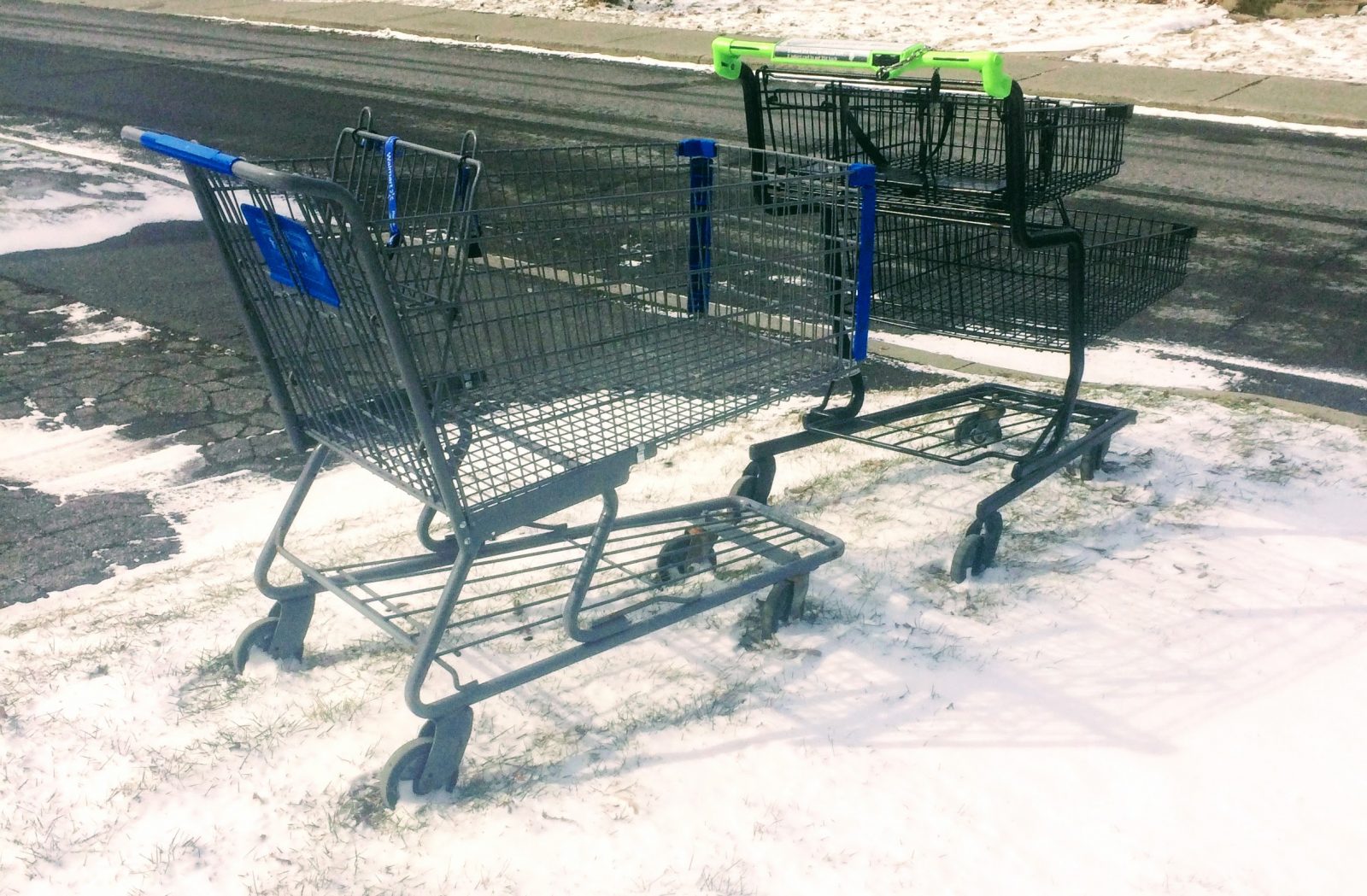CORNWALL, Ontario – Last week our paper published a story about the ongoing problem with shopping carts being abandoned around Cornwall. That article generated a significant amount of discussion on social media about what possible solutions that the City can put forward to solve the issue.
A common solution that’s been called for is to fine those who take shopping carts but do not return them. I believe that these are the people who are at fault in this whole thing, but I do not think that a fine is going to be a solution that’s fair or one that works.
While leaving things the way you found them is a common courtesy and if you take something, then you should return it, the City should consider why these carts are being taken in the first place.
Do people who have cars steal shopping carts? No. Do people who can afford to take a cab take shopping carts? Also no. Why push a shopping cart all the way home when you can just take a cab.
The people who are taking shopping carts don’t have access to a car or cannot afford a taxi. So if they can’t afford a taxi, then how effective or fair is a fine really going to be?
Chris Rogers of the By-Law Enforcement office acknowledged that poverty is a part of this growing issue.
“We know that poverty is part of the equation,” he said. “To ignore this reality would be insensitive to those who are less fortunate in our community.”
Another solution that came up in conversation was to fine the stores themselves, which is a solution that is also un-fair and doesn’t make much sense. The stores are the ones whose property is being stolen after all. It would be hardly fair to make the victim pay.
In the social media discussion it was brought up that in the City of Ottawa, some grocery stores have carts with wheels that lock after they leave a certain distance from the store. This solution may be what finally solves the problem for Cornwall, but it is not cheap.
Each cart as is already costs the store a couple hundred dollars. These new cars with anti-theft technology will be even more expensive and would be have to be phased in over a period of time. This might be the solution of the future, but it won’t solve the problem today.
I don’t have all the answers, but it seems like the route of the problem is poverty and the fact that the carts are convenient to take. An immediate solution has to be low cost and must also take away the incentive to take carts in the first place.
Maybe that involves a subsidy for low-income families that allows them to have a cheap cab ride home from the grocery store. Or, maybe as Chris Rogers suggested in an interview with Seaway News, that either shoppers or the stores themselves could be provided with smaller, cheaper carts to be used specifically by people who need them to help carry their groceries home.
Some stores already have a system on their carts where you must pay $1 or $2 as collateral, maybe that system needs to be more widespread or maybe that cost should be increased.
In either case, a fine for either the shopper or the stores will be like trying to get blood from a stone.



